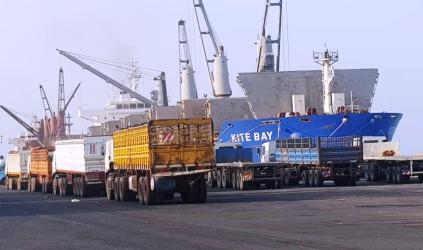Economic
Impact of War on Exports and Imports Revealed

Sudan Events – Rahab Abdullah
Economic expert Mohamed Adam Abu Al-Bashar shed light on the impact of the war on Sudan’s export sector, noting a decline in both quality and volume of exported goods due to shortages of raw materials and reduced production capacity, particularly for manufactured goods.
Decline in Gum Arabic and Sesame Exports
In a paper presented at the Economic Forum in Port Sudan, Abu Al-Bashar highlighted reduced exports of gum arabic, meat, peanuts, and sesame, which undermined their long-term competitiveness in global markets. Suppliers of these goods turned to competing countries, and disruptions to key transportation routes, including airports like Khartoum International Airport, further hindered export flows, particularly for meat to Gulf countries.
Gold exports, while less affected due to production in safe areas, faced increased smuggling to neighboring countries. Despite the potential for local currency depreciation to make Sudanese goods more competitive globally, this advantage was offset by deteriorated infrastructure and disrupted local supply chains.
Decline in Imports
The war also reduced the importation of essential goods such as fuel, food, and medicines, especially during the early months of the conflict. However, the government has since eased restrictions on importing ten essential items, including flour, sugar, lentils, rice, powdered milk, and medicines. Rising shipping and insurance costs due to increased risks have significantly raised import expenses, leading to higher prices for imported goods. Additionally, the depreciation of the Sudanese pound exacerbated inflation, while many citizens sought to invest their savings in foreign currencies, driving speculative demand for dollars.
Proposed Solutions
To mitigate the war’s effects on trade, Abu Al-Bashar proposed improving infrastructure, securing transportation routes, particularly to ports, and fostering local production. He also advocated for encouraging investments in food security and industries, launching economic initiatives to stimulate production, enhancing trade cooperation with neighboring countries, rebuilding international trust, attracting investments from expatriates, and reducing reliance on a single export resource like gold.



